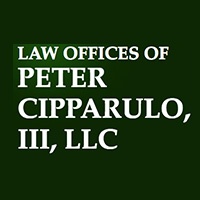New Brunswick RICO Act Lawyer, New Jersey
Sponsored Law Firm
-
 x
x

Click For More Info:
-
Law Office of Mark S. Guralnick
55 Madison Avenue 4th Floor Morristown, NJ 07960» view mapCriminal Defense Law Dedicated. Fearless. Successful.
Mark S. Guralnick and his legal team have helped clients throughout the USA and across the world by applying unparalleled dedication and hard work to each case.
800-399-8371
Not enough matches for New Brunswick RICO Act lawyer.
Below are all New Brunswick Criminal lawyers.
Barbara K Lewinson
✓ VERIFIEDBarbara K. Lewinson has practiced law in New Jersey for over 30 years, having been admitted to the Bar in December 1981. She has a general practic... (more)
Omar Kareem Qadeer
✓ VERIFIEDOmar K. Qadeer, Esq. is admitted to the New Jersey and New York Bars. Mr. Qadeer practices in a wide range of areas, including family law, immigratio... (more)
Peter Cipparulo
✓ VERIFIEDMr. Cipparulo was graduated magna cum laude and Phi Beta Kappa from Rutgers College in 1987 and was graduated from Seton Hall Law School in 1990. ... (more)
Andrew Maze
✓ VERIFIEDAndrew S. Maze is an attorney with over 26 years of hands-on litigation. Andrew began his career as a litigator in private practice as an associate in... (more)
 Mark Guralnick Morristown, NJ
Mark Guralnick Morristown, NJ AboutLaw Office of Mark S. Guralnick
AboutLaw Office of Mark S. Guralnick Practice AreasExpertise
Practice AreasExpertise





